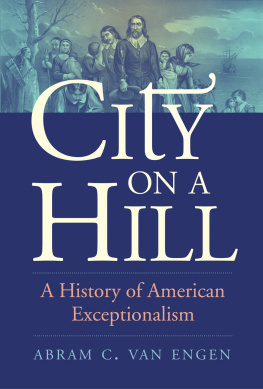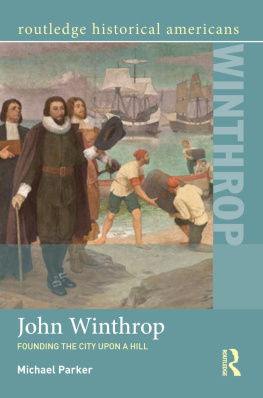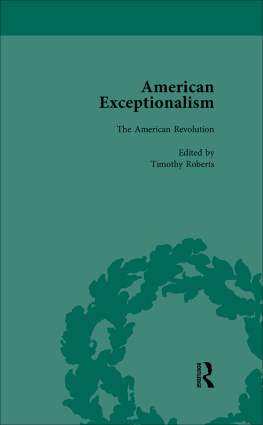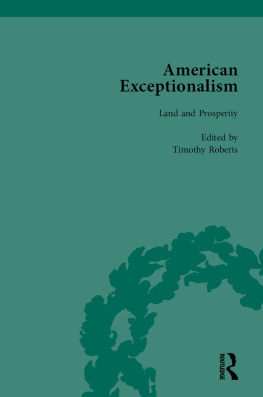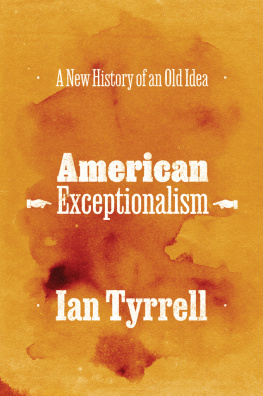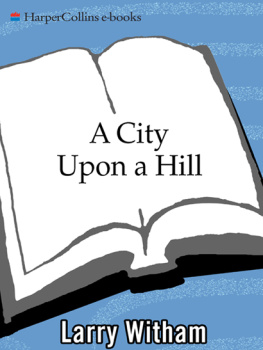CITY ON A HILL

Published with assistance from the foundation established in memory of James Wesley Cooper of the Class of 1865, Yale College, and from the Ronald and Betty Miller Turner Publication Fund.
Copyright 2020 by Abram C. Van Engen.
All rights reserved.
This book may not be reproduced, in whole or in part, including illustrations, in any form (beyond that copying permitted by Sections 107 and 108 of the U.S. Copyright Law and except by reviewers for the public press), without written permission from the publishers.
Yale University Press books may be purchased in quantity for educational, business, or promotional use. For information, please e-mail (U.K. office).
Set in Janson type by IDS Infotech Ltd., Chandigarh, India.
Printed in the United States of America.
Library of Congress Control Number: 2019945887
ISBN 978-0-300-22975-2 (hardcover : alk. paper)
A catalogue record for this book is available from the British Library.
This paper meets the requirements of ANSI/NISO Z39.48-1992 (Permanence of Paper).
10 9 8 7 6 5 4 3 2 1
For Simon and Grace,
who have lived almost the whole of their lives with the
making of this book,
and for Hendrik,
just born, who can live life free of it.
You have blessed me more than you could ever know,
or I could ever tell.
Contents
Note on the Text
Early modern spelling and grammar have been modernized through-out the book.
Introduction
The Birth of a Story
W HAT IS THE ORIGIN of America?
Pose that question to over two thousand people and a wide variety of answers will arise. Most focus on the founding era of the United States: the Declaration of Independence, the American Revolution, and the Constitution. Others turn to the colonial days, observing that America existed long before the nation. Some answers dwell on the originating presence of Native Americansthe first people on the soil of the Americas. Others focus more on the arrival of Europeans. Amerigo Vespucci gets mentioned. The coming of Columbus. Jamestown, Captain Smith, Pocahontas. So many possible answers, so many different times and places to begin. And always, in the midst of these responses, one answer will emerge among the rest: Pilgrim Landing, Plymouth Rock, and the Puritans.
The question of American origins, of course, has no real answer. People can argue for their particular choices, but such debates tell us much more about how they view America today than how America actually began. In that sense, historical origin stories function primarily as present-day descriptions. Each answer defines what a person means by America. Beginning with Native Americans, for example, suggests a story of chronological priority untethered to modern political boundaries: America is all the territory from the Bering Strait to the bottom of Argentina, including all the people who have ever lived and moved and had their being here. It is a long story, a tale teeming with diversity. Rather than beginning something new, Europeans stumbled onto well-established nations and civilizations, disrupting cultures and forms of life, adding to the mix, changing and reshaping an America that existed long before them.
Answers that emphasize the Revolutionary era, meanwhile, define America much more narrowly. They focus on one particular nation that came into being at one particular time. Even here, however, the distinctions can be quite telling. Does America start with a fundamental statement of principles (the Declaration of Independence), a bloody war (the American Revolution), or the eventual establishment of a mostly stable government (the Constitution)? No doubt, most people see these answers as related, but the specific responses embed quite different accounts of what makes America America after all.
When respondents point to Jamestown, a separate element enters the picture. Jamestown is the first permanent English settlement in what would later become the United States. As a result, it defines America as a nation that blossoms forth from English roots. Jamestown outweighs and overshadows all other potential nationalities, ethnicities, races, immigrants, and colonial experiments, along with all their consequences and contributions. Very few ever know that the Spanish established St. Augustine in Florida in 1565, more than four decades before the English came to Jamestown. More broadly, the Spanish had been living in the Americas for a full century before the English and had already pushed into Florida and the territory of what is now New Mexico. The French also arrived earlier than the English, beginning explorations in the sixteenth century and establishing Quebec in 1608, then encroaching into what is now the Midwest and down the Mississippi. Around the same time, the Dutch headed up the Hudson. And in 1619 another Dutch ship brought enslaved Africans to Virginia. As often as I ask the question, however, no one ever mentions Spanish, French, Dutch, African, or any other national, ethnic, or racial roots.
And then, of course, there are the Pilgrims. On the face of it, their appearance as an origin makes no sense. They were not the first people here, nor the first Europeans here, nor the first English here, nor did they establish a new and separate nation. What possible claim can they have to beginning the story of America? Here, the answer focuses specifically on ideas and beliefs. Pilgrims surface as an origin because, we are told, they were the first onesthe only oneswho came in search of something better, something nobler, something different. They sailed for civil and religious liberty. They came to worship God. They established democracy on distant shores. However one defines it, the Pilgrims arrived with a principle, and that principle, we are led to believe, is what has defined America ever since. If origin stories are present-day definitions cast back onto history, then the Pilgrims and Puritans have historically enabled Americans to define their nation not as the outcome of events but as the fruition of exceptional ideals.
For many years now, this story of America has been supported by one particular, powerful phrase: the declaration that we are a city on a hill. When scholars and politicians first began calling the United States a city on a hill, they pointed to the place of these words in a Puritan sermon, A Model of Christian Charity, preached in 1630 by John Winthrop, the first governor of Massachusetts Bay, just before he and his followers arrived. In that moment, in that sermon (we have been told), Winthrop opened the story of America. He called on us to serve as a beacon of liberty, chosen by God to spread the benefits of self-government, toleration, and free enterprise to the entire watching world. Invoking the Sermon on the Mount, in which Jesus uses the metaphor to describe his followers (Matthew 5:14), Winthrop declared to his fellow Puritans, For we must consider that we shall be as a city upon a hill. The eyes of all people are upon us. Ignoring the scriptural basis for this proclamation, President Ronald Reagan explained in his Farewell Address to the Nation (1989) that the phrase comes from John Winthrop, who wrote it to describe the America he imagined. What he imagined was important because he was an early Pilgrim, an early freedom man. The significance of Winthrops statement, in other words, has everything to do with its timingwith the fact that Winthrop made this statement at the very beginning of America, defining its identity and purpose ever since.
Yet Winthrops sermon came to fame only recently. It is, in many respects, a product of the Cold War. In the 1950s, a widespread and worried search for the meaning of America turned increasingly to
Next page
